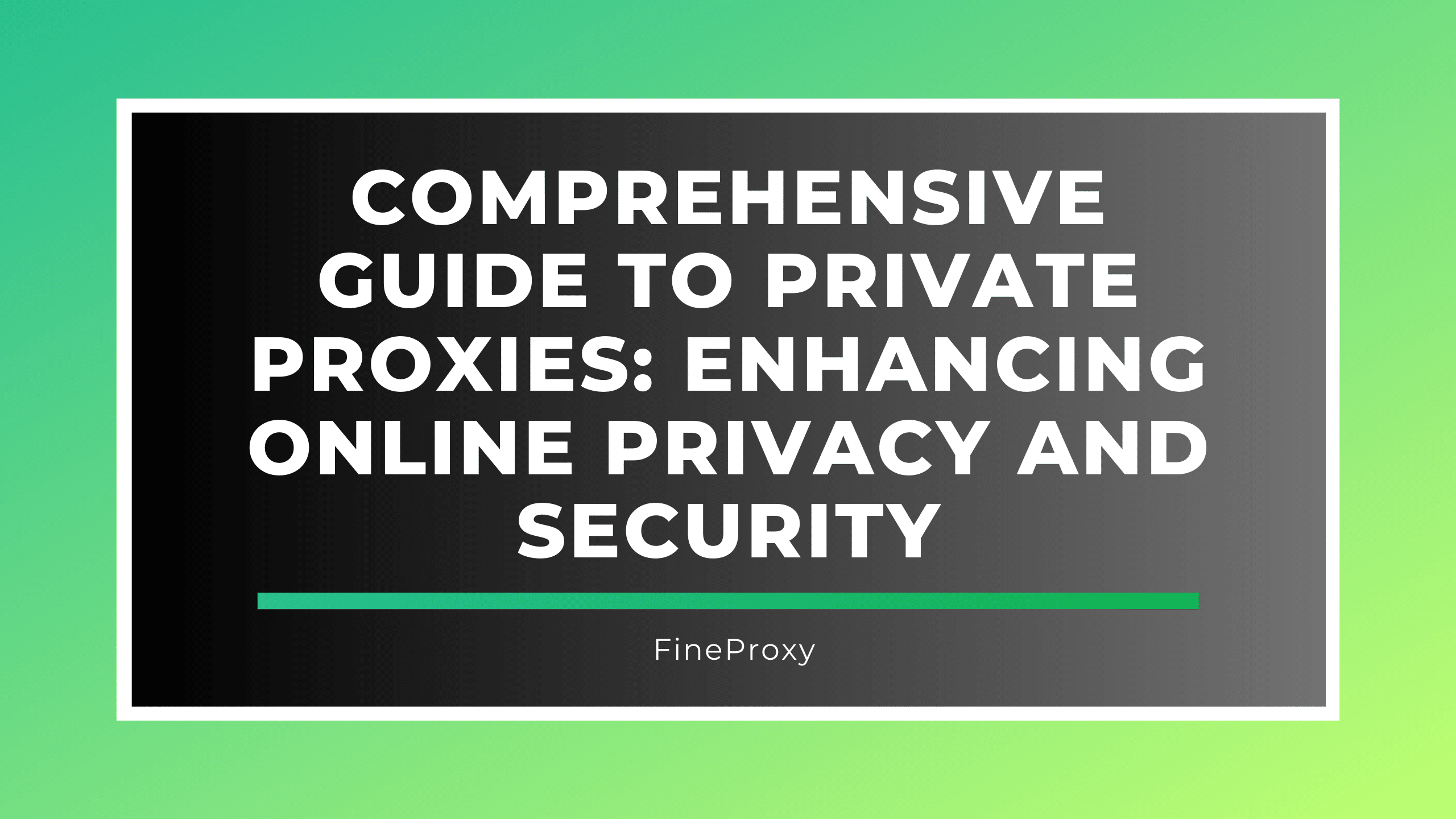
Table of Contents
In an era where digital privacy and security are paramount, private proxies emerge as a vital solution for individuals and businesses aiming to safeguard their online activities. Amidst escalating cyber threats and digital surveillance, understanding the role and importance of private proxies is more crucial than ever. This guide delves into the essentials of private proxies, exploring their functionality, benefits, types, and how they operate in today’s digital landscape.

What is a Private Proxy?
A private proxy acts as an intermediary server between your device and the internet. It forwards your web requests to the target server and relays the response back to you, effectively serving as a middleman. This process enhances privacy and security by masking your real IP address from websites and online services.
Why Use Private Proxies?
Private proxies offer numerous advantages, including:
- Enhanced Privacy: By hiding your real IP address, it becomes difficult for online services to track your activities.
- Bypassing Geo-restrictions: They enable access to content restricted to specific geographic locations.
- Protecting Your Identity: Private proxies safeguard your personal information and browsing habits.
- Improved Security: They add an extra security layer, shielding you from direct cyber threats.
Types of Private Proxies
Private proxies vary in type, each serving different needs:
- Dedicated Private Proxies: Assigned to a single user, offering full control and fast connection speeds.
- Shared Private Proxies: Used by multiple users, more cost-effective but potentially slower.
- Residential Private Proxies: Assigned to real residential addresses, offering high anonymity levels.
- Datacenter Private Proxies: Hosted in data centers, known for their speed and reliability.
How Private Proxies Work
Private proxies enhance digital privacy and security by:
- IP Masking: Your device’s IP address is hidden, making your online activities difficult to trace.
- Anonymity Levels: They offer varying degrees of anonymity, from transparent to elite proxies, each providing different levels of privacy.
- Proxy Protocols: Including HTTP, HTTPS, and SOCKS, each protocol caters to specific online activities, offering varying degrees of security and functionality.
Advantages of Using Private Proxies
The benefits of using private proxies extend to:
- Enhanced Online Privacy: Making it challenging for external entities to track your internet footprint.
- Bypassing Geo-restrictions: Allowing you to access content from any geographical location.
- Protecting Your Identity: Shielding your personal information from potential cyber threats.
- Improved Security: Acting as a buffer between your device and malicious actors.
Common Use Cases for Private Proxies
Private proxies are invaluable for:
- Web Scraping: Allowing for efficient data extraction without being detected or blocked.
- SEO Monitoring: Enabling accurate, geo-diverse search results for better SEO strategy formulation.
- Social Media Management: Assisting in managing multiple accounts securely and efficiently.
- Sneaker Bots: Facilitating the purchase of limited-release sneakers by overcoming purchase restrictions.
- Gaming: Enhancing online gaming experiences through reduced latency and access to geo-restricted content.
Choosing the Right Private Proxy Provider

Selecting a suitable private proxy provider involves considering:
- Pricing and Plans: Aligning with your budget and specific needs.
- Location Coverage: Ensuring access to servers in relevant geographic locations.
- Proxy Speed and Reliability: Essential for tasks requiring fast and stable connections.
- Customer Support: Vital for resolving technical issues and ensuring smooth proxy usage.
Setting Up and Configuring Private Proxies
Configuring private proxies involves:
- Proxy Configuration for Web Browsers: Adjusting browser settings to route traffic through the proxy.
- Using Private Proxies with Software Applications: Configuring applications to use proxies for internet access.
- Proxy Authentication: Ensuring secure access to the proxy server through various authentication methods.
Best Practices for Using Private Proxies
To maximize the effectiveness of private proxies:
- Rotate IP Addresses: To avoid detection and potential bans.
- Monitor Proxy Performance: Ensuring optimal operation and swift issue resolution.
- Adhere to Security Tips: Including keeping proxy credentials confidential and using encrypted connections.
Potential Drawbacks of Private Proxies
While private proxies offer significant benefits, potential drawbacks include:
- Speed and Latency Issues: Due to the indirect routing of internet traffic.
- Legality and Ethical Considerations: Necessitating responsible use within legal and ethical boundaries.
- Proxy Blacklisting: Potential blocking by websites if detected.
- Costs and Budgeting: Requiring consideration of the financial implications of proxy services.
Conclusion
Private proxies stand as a cornerstone in the pursuit of online privacy and security, offering users the means to protect their digital activities. By carefully selecting a proxy provider and adhering to best practices, individuals and businesses can harness the power of private proxies to navigate the digital world securely and efficiently.






Comments (0)
There are no comments here yet, you can be the first!